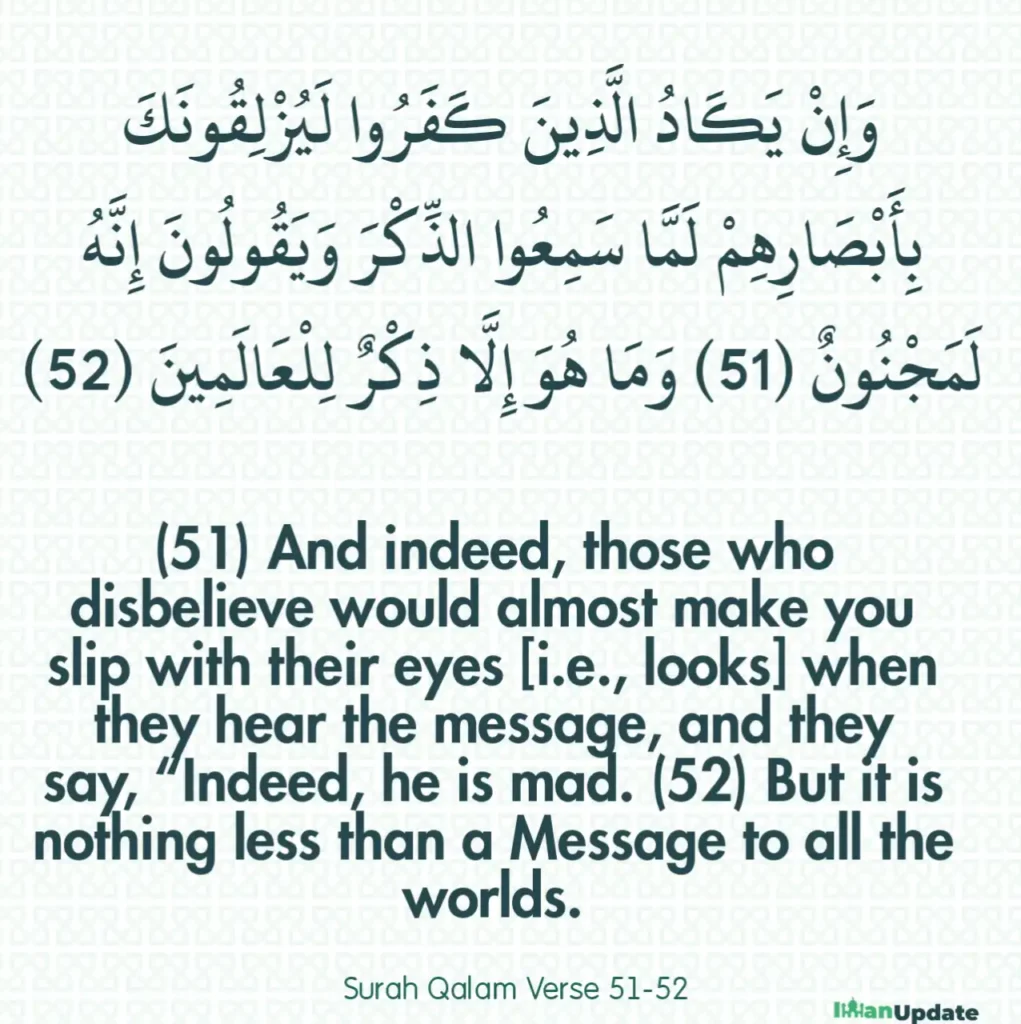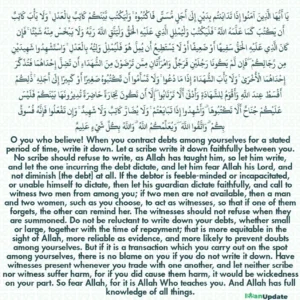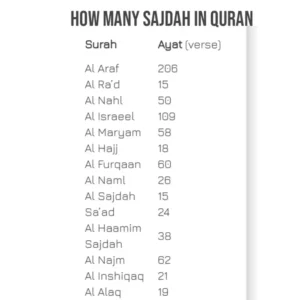Surah Qalam Last 2 Ayat In Arabic, Translation and Benefits

Surah qalam last 2 ayat are 51 and 52, conclude the 68th chapter of the Qur’an, which comprises 52 verses. Surah Al-Qalam, translated as “The Pen,” explores significant themes, including addressing the objections and criticisms of the disbelievers, warning and admonishing those who refuse to believe and encouraging the Prophet Muhammad (peace be upon him) to remain patient and steadfast in the face of adversity.
This surah emphasizes God’s justice and the ultimate reckoning on Judgment Day, serving as a powerful reminder of the consequences of one’s actions.
Surah Qalam Last 2 Ayat In Arabic
وَإِنْ يَكَادُ الَّذِينَ كَفَرُوا لَيُزْلِقُونَكَ بِأَبْصَارِهِمْ لَمَّا سَمِعُوا الذِّكْرَ وَيَقُولُونَ إِنَّهُ لَمَجْنُونٌ (51) وَمَا هُوَ إِلَّا ذِكْرٌ لِلْعَالَمِينَ (52)
Surah Qalam Last Ayat Transliteration
51. Wa iny-yakaadul lazeena kafaroo la-yuzliqoonaka biabsaarihim lammaa sami’uz-Zikra wa yaqooloona innahoo lamajnoon. 52. Wa maa huwa illaa zikrul lil’aalameen
Surah Qalam Last 2 Ayat Meaning In English
51. And indeed, those who disbelieve would almost make you slip with their eyes [i.e., looks] when they hear the message, and they say, “Indeed, he is mad. 52. But it is nothing less than a Message to all the worlds.
Those who reject the truth would nearly cast a spell on you with their malicious gaze, fueled by hatred, when they hear the Qur’an.
According to Ibn `Abbas, Mujahid, and other scholars, this means they attempt to influence you with their intense stares, seeking to harm you through the evil eye.
This jealousy stems from their deep-seated hatred, and if not for Allah’s protection, their malevolent gaze would have a detrimental effect on you.

READ ALSO: The Longest Verse in Quran: Find Out
The Effect of the Evil Eye is Real
The concept of the evil eye is real and acknowledged in Islam, as evident in various hadiths and Quranic verses. The evil eye refers to the harm or misfortune caused by someone’s jealous gaze or malicious intentions.
Several hadiths narrated by prominent companions, including Ibn Abbas, Abu Umamah, and Abu Said Al-Khudri, demonstrate the Prophet’s (peace be upon him) teachings on how to be protected from the evil eye.
These hadiths highlight the importance of seeking protection from the evil eye through supplications, ruqyah (healing prayers), and other means.
The Prophet (peace be upon him) himself sought refuge from the evil eye, and his companions reported instances where the evil eye caused harm, which was then alleviated through prayer and ruqyah.
The Quranic verse “And verily, those who disbelieve would almost make you slip with their eyes” (Surah Al-Qalam, 51) serves as evidence of the evil eye’s reality.
The verse indicates that the disbelievers’ intense gaze, driven by hatred and jealousy, can potentially harm the believer, but Allah’s protection safeguards against such malevolent forces.
In conclusion, Islam recognizes the evil eye as a legitimate concern, and the Prophet’s (peace be upon him) teachings offer guidance on prevention and cure through spiritual means, emphasizing the significance of seeking Allah’s protection and blessings.






